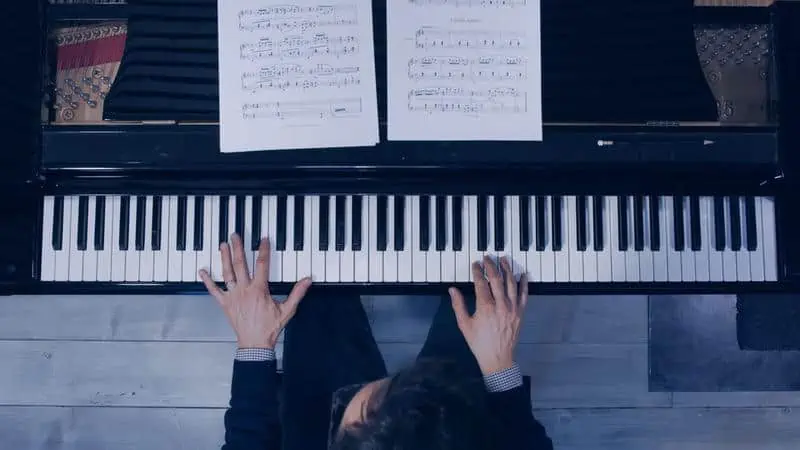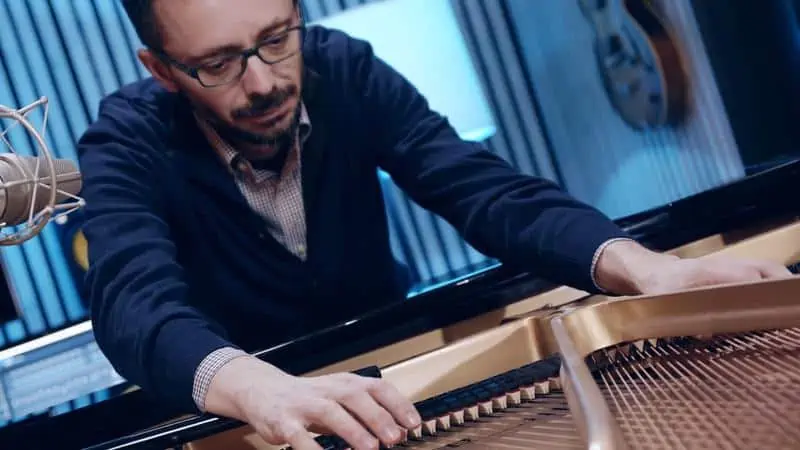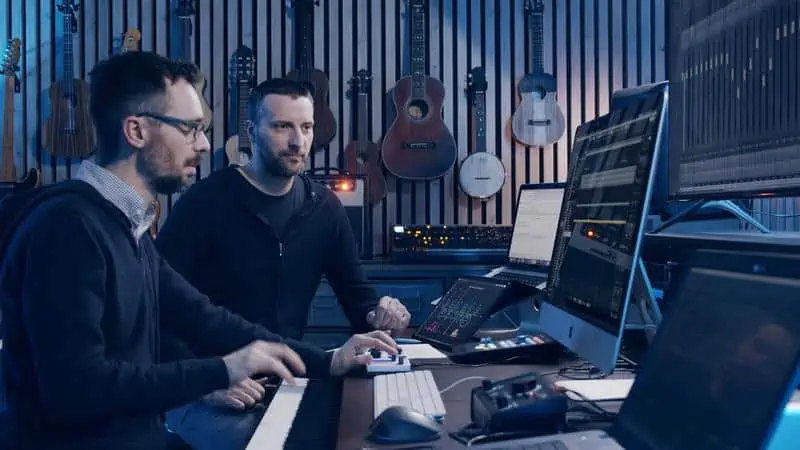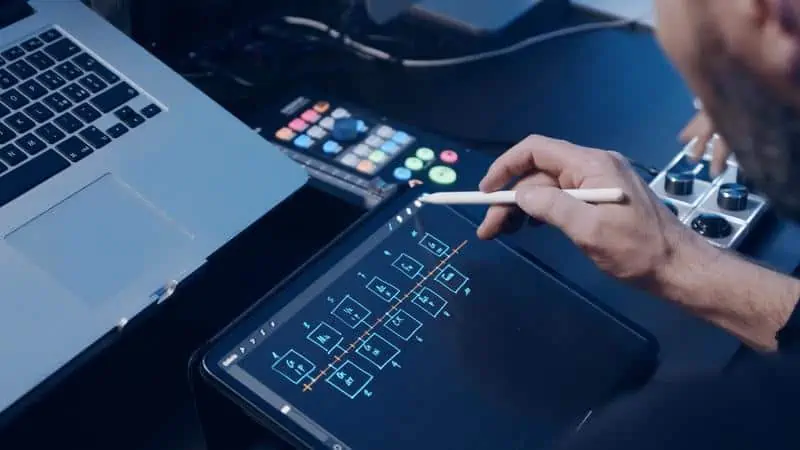Music teacher, composer, multifaceted musician … Alessandro Ponti is responsible for the music department for the soundtrack of the Soeliok audiobook. The breath of the earth. A unique project in Italy, a real universe where the paper book, the eBook, the audio book and soon many other novelties coexist.
What does it mean to create music for an audio book? Where does one start from and how does the narrator’s voice integrate into the musical plot? We talked about it with Alessandro, also investigating his important cultural background.
Happy reading!
What studies did you do to become who you are today?

You compose, teach and play… which of these activities do you feel most yours?
How long have you been doing this job?
In addition to “classical” composition, therefore, do you also deal with music for video games?
How important is it to be a musician before being a composer?
Could you do without technology?
Interesting, I take note.
What tools do you use to write music?
Handwriting (on yellow paper and with HB pencil) is fundamental for me, even when I write music for images (and by this I also mean for a project like Soéliok, where the images are not provided by a video, as generally happens, but they are created by the author’s narration and made even more ‘real’ by the voice of Carlo Valli).
The goal is to represent as faithfully as possible that inner music that accompanies the image and emotion created in me by the story (always in the stylistic-musical context that we have defined for Soéliok). The hand allows you to let the idea flow with more clarity and fluidity and seeing this idea taking shape on paper allows you to control its shape, its development in space or time.
When I write ‘classical’ music, i.e. intended for a concert performance, I sometimes prepare the writing work with schemes, small texts and even simple drawings precisely to outline the overall form of the composition, its (more or less complex) formal path .
To then achieve professional quality in the score, I use software. I have very recently started using Steinberg’s Dorico, with which I finally found a lot of that fluidity that I have always lost in the transition to the computer. And many other things this software can do!
Who are the artists who have influenced you?
What music do you listen to when you are not in work mode?
Who wins between the organ and the piano?
You teach computer music: what does this subject consist of?

Is Soeliok the first project in which you collaborate with ZoneCreative?
How did you react to the proposal to sound an audiobook?
How did you find working with ZoneCreative?
It all starts with writing
Daniele has also chosen you for your degree in literature. Do you think it helped?
The audiobook has many situations and characters, have you established any rules?
Did you plan from the beginning to soundtrack the whole novel?

Daniele is very attentive to musical narration. How did you approach the job?
Were you inspired by any particular soundtrack?
How did you interface with Daniele? Did you have a specific working method?
To the fighting posts!
What kind of equipment did you use?
Did you read the book before starting work?

Before being a story, Soeliok is a universe, can it be perceived in history?
Do you have a favorite character?
What is the musical theme you are most satisfied with?
Have you also planned another diffusion for the music?
In an audio book the narrator's voice is always present: is the composition influenced by it?
First of all ... let's tune!
Daniele is also a musician: did he interfere with your creativity?
Are you satisfied with the work done so far?
How will you organize to soundtrack the second and third books of the trilogy?
We already have some motifs from the second book and obviously those created for the first book that you can hear in full in the web book . The way of working has proved effective, but we can improve it still further. From my point of view, I hope to be able to further simplify the line of work without compromising the quality and depth of the tracks produced. We hope to be able to support the production of book 2 and 3 with a crowdfunding campaign that will allow us to record even more material live. Some motif or theme with an orchestra would not be bad, even in anticipation of the album! ZoneCreative would also lend itself very well to acting as a musical center (where local and non-local classical musicians meet, play together and record, where to create an ensemble that can be involved in every musical production of the agency).
